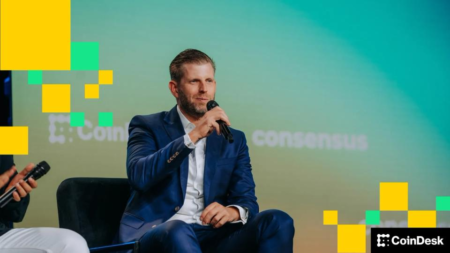Binance Listing Controversy: A Deep Dive into Transparency and Business Models
The cryptocurrency space is rife with speculation, innovation, and, increasingly, controversy. Recently, Binance, one of the largest centralized exchanges in the world, found itself at the center of a contentious debate regarding its listing practices. This controversy ignited following a viral post on X, where Web3 founder CJ alleged that Binance was demanding substantial airdrops, deposits, and token allocations from new projects, possibly amounting to millions of dollars. This article explores the implications of this controversy, emphasizing the importance of transparency in crypto listings and the varying business models adopted by exchanges.
The Spark of Controversy
The uproar began with a detailed thread by CJ, garnering over 2.4 million views, which claimed that Binance’s listing conditions included a 1% airdrop on day one, ongoing airdrops, a security deposit of $250,000, and a hefty $2 million in BNB tokens for securing a spot listing. In stark contrast, CJ claimed that Coinbase’s approach was significantly different, merely asking projects to "build something meaningful on Base." This comparison not only highlighted the discrepancies between the two leading exchanges but also raised questions about the ethical implications behind such listing demands.
Binance’s Response: A Clarification
In response to the allegations, Binance published an official post titled “Spotlight on how Binance listings actually work.” In this communication, the exchange asserted that they do not profit from the listings. They clarified that any deposits made by projects are fully refundable, serving primarily as safeguards against short-term speculation rather than a source of revenue. Binance emphasized that user protection is paramount, stating that all project tokens are allocated distinctly through various marketing initiatives, including Alpha Airdrops and trading events. They also promoted their Alpha Program, designed to offer early projects visibility with no initial fees.
CZ’s Unpopular Opinion
Changpeng “CZ” Zhao, CEO of Binance, took to social media to share his perspective on the criticism, asserting that if a project has substantial merit, it should not feel the need to pay anything for a listing. He framed the conversation around the diversity of business models across exchanges, defending Binance’s approach as a way to deter scams and protect users. In his view, the variation in listing practices—whether they involve fees, deposits, or airdrops—reflects the foundational nature of competitive business strategies within the industry.
Divided Opinions in the Community
The community’s reaction to the unfolding controversy remains split. Some founders corroborated CJ’s claims, revealing that they had faced similar demands when seeking listings on Binance. Conversely, others argued that the exchange’s airdrop model inherently favors users by enhancing their access to tokens without draining the project’s resources. This discourse highlights a fundamental tension in the cryptocurrency ecosystem—between the necessity of user protection and the demands placed on emerging projects trying to gain visibility.
Competitive Landscape and Transparency
As the Binance controversy simmered, discussions naturally transitioned to the competitive practices of exchanges. Observers noted that exchanges seldom list rival native tokens; for instance, Coinbase has never hosted BNB despite its rank among the top five cryptocurrencies by market capitalization. However, in an unexpected twist, Coinbase recently announced that it would consider adding BNB to its roadmap for potential listing. This move surprised market participants and indicates a shift in the competitive landscape, perhaps influenced by the unfolding debate regarding transparency and ethical practices.
Conclusion: The Call for Greater Transparency
The Binance listing controversy underscores the pressing need for enhanced transparency within centralized exchanges (CEXs). While Binance champions its user-centric model, the debate reflects broader issues that plague the crypto industry regarding accountability and fairness in listing processes. As projects navigate the complexities of token listings, the discussion around business models will only intensify. The emergence of competitive dynamics, as evidenced by Coinbase’s potential interest in listing BNB, may signal a new era where both user experiences and ethical practices become paramount in the quest for market leadership. As the industry evolves, stakeholders must collectively aim for a fairer landscape that fosters innovation while ensuring user protection.

















